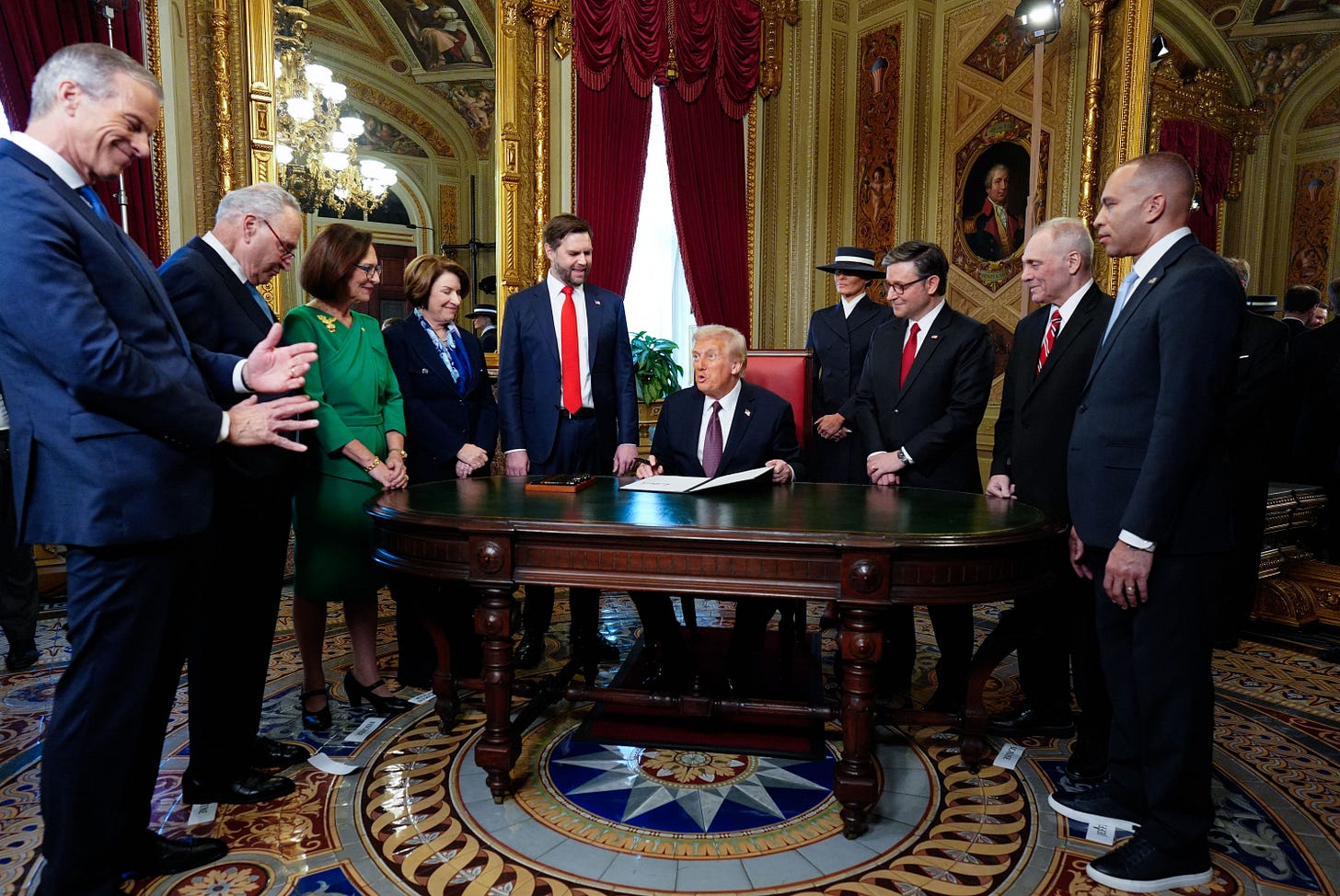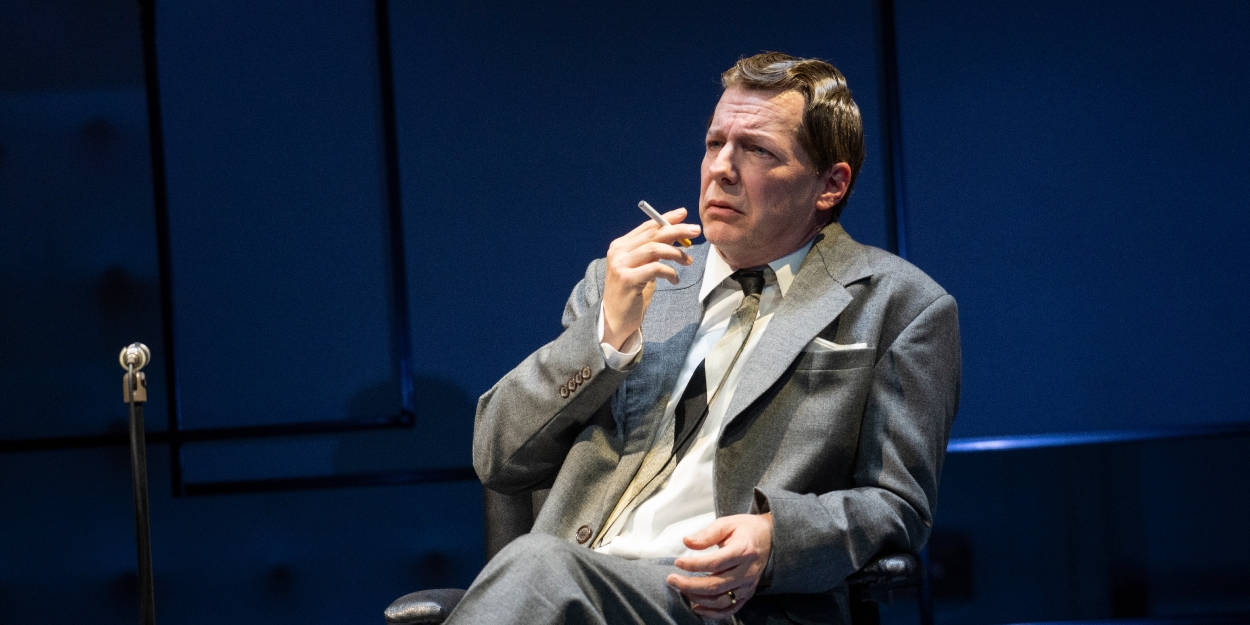Illegal Actions, Missing Consequences


TWO WEEKS INTO HIS SECOND TERM as president, Donald Trump has done one salutary service for the nation: He’s obliterated the myth that there is anything politically or morally redeeming about concentrated presidential power.
Trump isn’t acting entirely without precedent, however: In some respects, he’s exploiting—quickly and fairly systematically—successful presidential overreaches or power giveaways from Congress and federal courts to push his radical agenda.
When, in the 1830s, the Supreme Court told Andrew Jackson he couldn’t forcibly relocate native peoples from Florida to the Oklahoma territory, he did it anyway and paid no price for it.
Abraham Lincoln suspended habeas corpus during the Civil War despite lacking any constitutional authority to do so. Congress and federal courts let his actions slide.
Franklin Delano Roosevelt ordered the roundup and incarceration of over 100,000 innocent and loyal Japanese Americans after the Pearl Harbor attack in violation of their constitutional rights. The Supreme Court let him get away with interning Japanese citizens in concentration camps for most of World War II.
Dwight Eisenhower let J. Edgar Hoover launch the infamous Counterintelligence Program (COINTELPRO) at the FBI. The program remained secret for fifteen years until it was exposed in 1971 after the Citizens Commission to Investigate the FBI broke into an FBI office. Among COINTELPRO’s targets were Rev. Martin Luther King Jr. and his organization, the Southern Christian Leadership Conference.
Richard Nixon’s penchant for authorizing political subversion operations against his Democratic party opponents nearly led to his impeachment. Despite being forced to resign, Nixon received a preemptive pardon from his former vice president and successor, Gerald Ford, ensuring that Nixon escaped criminal accountability for his actions.
And there is no shortage of comparable examples from twenty-first-century presidents, including especially the actions taken by George W. Bush during the intelligence operations and wars that followed the September 11 attacks.
Which brings us to Donald Trump. The acts for which he was twice impeached were far from the only times he abused his office. And now, two weeks into his second term, he has already seen fit to violate several laws. Some have largely symbolic importance. For example, Trump’s executive order mandating flags fly at full staff during “this and all future Inauguration Days,” even during a mourning period for a deceased president when flags are supposed to be at half-staff, is a direct violation of existing law. Other laws Trump is violating are far more consequential.
It’s only going to get crazier. Ride with us, and we’ll help you keep your sanity intact.
His “Friday Night Massacre,” which involved the sacking of over a dozen agency or department inspectors general (IGs), violates a current statute enacted in late 2022 by failing to give 30 days’ notice to Congress before firing an IG. As far as political norms are concerned, this is bigger than just ignoring a congressional notification requirement.
The entire purpose of having IGs is to help expose and stop waste, fraud, abuse, mismanagement, or even criminal conduct (the latter requiring a referral to the Justice Department for action). IGs are supposed to focus on ensuring agency or department adherence to existing laws and regulations. Trump’s mass purge of these IGs for no other stated reason than that he can sends a chilling message to the remaining IGs and their staffs, and it provides comfort to those hoping their illicit government activities might now be allowed to slide.
And any would-be whistleblower seeking to expose misconduct by Trump or his appointees is now on notice that doing so would, at best, be pointless and, at worst, invite firing or even prosecution for defying Trump.
Meanwhile, Trump has also exceeded his authority by ordering a funding freeze on federal grants and loans. Set aside the fact that his White House then sent conflicting messages, and that a court blocked his funding freeze. Remember that his first impeachment back in 2019 was for something similar: failing to disperse congressionally authorized aid to Ukraine.
Alas, he was acquitted on a nearly party-line vote in the Senate. He faced no consequences for violating the law then; he certainly won’t face consequences for doing it the second time around. And of course there’s no way to hold him criminally accountable, either, thanks to the Supreme Court’s creation in Trump v. U.S. of presidential immunity for “official” presidential actions.
For the foreseeable future at least, Trump can count on strong support from his House and Senate GOP allies, who will control both chambers for at least the next two years.
Trump’s firing of the IGs elicited little more than a yawn from Senator Lindsey Graham (R-S.C.), who told NBC’s Kristen Welker, “I’m not losing a whole lot of sleep that he wants to change the personnel out.”
As noted above, IG’s are not there to advance a given president’s political agenda. They are there to weed out waste and uphold the law.
It is doubtful Senator Graham and his colleagues would be so blasé about a government-wide IG housecleaning if the president of the other major party was the one doing it.
And therein lies the biggest problem: political tribalism being used to undermine core governmental institutions.
Last week, Trump’s acting attorney general fired multiple career civil servant Justice Department lawyers who worked on the investigations into Trump’s potential role in fomenting the January 6th attempted coup to keep himself in power and his de facto theft of dozens of classified documents during his White House departure in 2021. Those firings likely violate one or more federal laws designed to protect career civil servants from politically motivated retaliatory firings.
Meanwhile, the acting U.S. attorney for Washington, D.C., Ed Martin, has reportedly ordered a “review” of the 1,500 or so January 6th prosecutions carried out by the Justice Department. But who is Martin? As ABC News noted, he was “a promoter of President Donald Trump’s ‘Stop the Steal’ campaign who was himself seen on Capitol grounds during the riot.” Now he’s ordered prosecutors in the office to turn over all records related to their work on the cases.”
This isn’t about the rule of law. It’s about the law of the jungle and political score-settling. Donald Trump’s promised “revenge tour” is likely just getting started.
Source: View source



